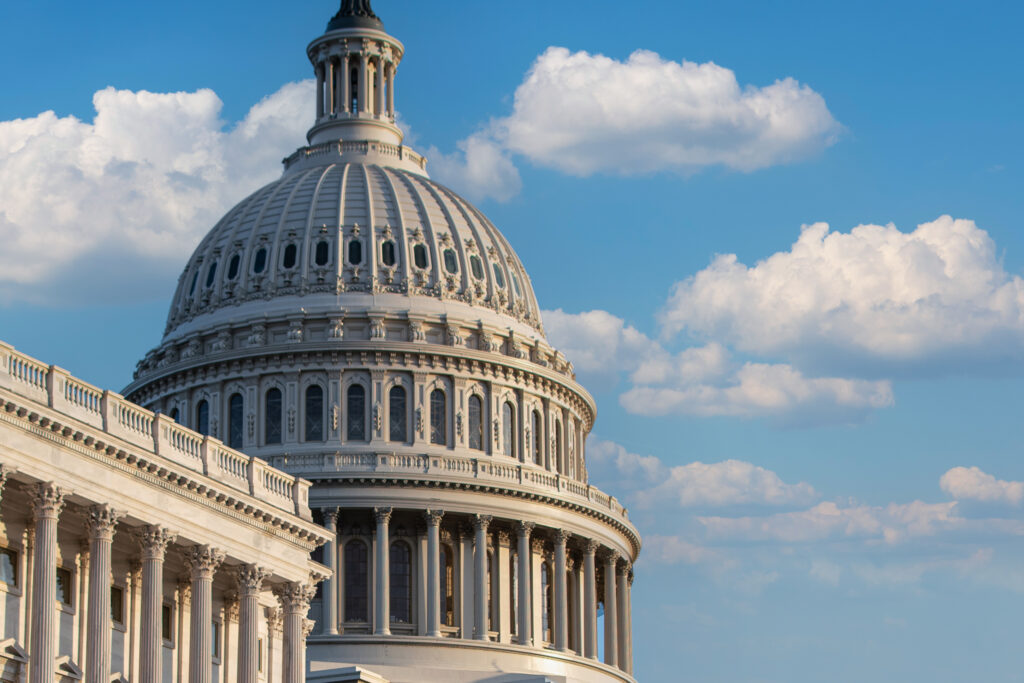FFYF Analysis of 2024 State of the State Addresses

Analysis of 2024 State of the State addresses given by Governors across the country found that child care, early learning, and early childhood received substantial attention across state and party lines.
Since 2019, First Five Years Fund (FFYF) has analyzed State of the State addresses given by Governors across the country. This year’s analysis looked at the 40 Governors who delivered addresses before February 22, 2023, and found a staggering majority (82%) devoted a portion of their remarks to child care, early learning, and policies that help new parents and babies.
OF NOTE
- The issue saw considerable attention from both sides of the aisle, with 42% of Republicans and 57% of Democrats devoting portions of their speech to it.
- Topics ranged from the importance of child care tax credits (like the CDCTC), investing in child care and early learning so parents could go to work, the importance of children’s first five years, making child care and early learning more affordable, and more.
- A third of governors represent states that will be pivotal to the 2024 White House, Senate, and House outcomes, including Arizona, Florida, Georgia, Iowa, Kansas, Maine, Michigan, Pennsylvania, South Carolina, Virginia, and Wisconsin.
- Year over year we have seen an increase in the number of governors, both Republican and Democratic, who spend part of their speech talking about why child care, early learning and childhood are so important for families. (Past analyses: 2023, 2022, 2021, 2019)
BY THE NUMBERS
Of those governors who specifically raised child care, pre-K and early childhood as a priority:
- One-third specifically cited investing in child care and early learning as a way to help parents go to work and create economic stability;
- One-third highlighted how increased funding helps create and expand more early learning spots for infants and toddlers;
- One-third specifically highlighted the high cost of child care and early learning as something holding parents and children back;
- One in four pointed to increased funding for child care and early learning as a way to set up children for strong futures and ensure they enter kindergarten ready to learn;
- One in five specifically pointed towards child care tax credits as a way to help offset the cost of care for working parents.
- And five governors specifically called for increased funding as a way to retain and expand the dwindling child care and early learning workforce.
Key Takeaway From FFYF’s Sarah Rittling: “Governors, Republicans and Democrats alike, continue to elevate child care and early learning as central to the health and wellbeing of families, children, the workforce, and their state’s economy. As a centerpiece of their state of the state addresses Governors are acknowledging the role child care plays, but states rely on federal investments they can build upon.”
Executive director Sarah Rittling, First Five Years Fund
Governors from the following states highlighted child care, early learning, and policies that help new parents and babies:
Alabama, Alaska, Arizona, California, Colorado, Connecticut, Florida, Georgia, Hawaii, Illinois, Indiana, Iowa, Kansas, Kentucky, Maine, Maryland, Massachusetts, Michigan, Missouri, Nebraska, New Hampshire, New Jersey, New Mexico, New York, Pennsylvania, Rhode Island, South Carolina, South Dakota, Tennessee, Virginia, Washington, West Virginia, and Wisconsin
IN THEIR OWN WORDS
Mike Parson (R-MO): “Business leaders estimate that lack of early learning programs is costing our state over $1 billion dollars annually. AND over 85 percent of Missourians believe early childhood learning supports a child’s success, parents’ success, and business success. But today, we have the capacity to serve just 39 percent of Missouri children in licensed facilities. It’s time for change.”
Andy Beshear (D-KY): We are rightfully concerned about learning loss. So, we should address it where it begins. In the last academic year, only 46% of kindergartners were considered kindergarten-ready. Instituting universal pre-K the right way … means investing in both pre-K and our child-care providers.”
Eric Holcomb (R-IN): “We must expand our child care workforce to help working moms and dads in Indiana.”
Tony Evers (D-WI): “Wisconsin faces a looming child care crisis—costs to working families are skyrocketing, we don’t have enough child care providers, and the providers we have are struggling to keep the lights on. And the effects are intuitive—if a kid no longer has child care or a parent can’t afford it, someone’s going to have to stay home with them. Folks, lack of accessible, affordable child care is a statewide workforce issue.”
Laura Kelly (D-KS): “We also provided tax credits to make it easier for businesses to provide child care for their employees. But we still have so much more to do.”
Jim Justice (R-WV): “I’m proposing a Child and Dependent Care Tax Credit where folks that are struggling with daycare can at least write them off your taxes against your revenue. We need this and we need this very badly and we need it right now.”
Maura Healey (D-MA): “Housing is the biggest item in most family budgets – unless, of course, you have kids in child care. Costs have been too high for too long, while providers and care workers have been barely hanging on.”
THE ROLE OF CONGRESS
Ensuring that more families have access to affordable, quality care options for their children will take a full range of partnerships at the government, employer, and community level.
The federal government plays a leading role in supporting the nation’s child care and early learning sector. Federal funding provides the backbone for core child care programs like the Child Care and Development Block Grant (CCDGB) and Head Start. At the same time, the federal tax code contains provisions to help offset the high cost of child care for working families. Both funding and tax provisions, however, need to be strengthened to reach more working parents and young children while supporting economic stability across the country.
THE BOTTOM LINE
It’s important that this continues to be an issue that cuts across both state and federal policy. Working families need quality, affordable child care. Businesses rely on parents having options accessible to them so they can go to work. As Governors and states continue to explore solutions, Congress should pursue all available federal options to help ease the burden of the skyrocketing cost of child care on working families.
Subscribe to FFYF First Look
Every morning, FFYF reports on the latest child care & early learning news from across the country. Subscribe and take 5 minutes to know what's happening in early childhood education.



